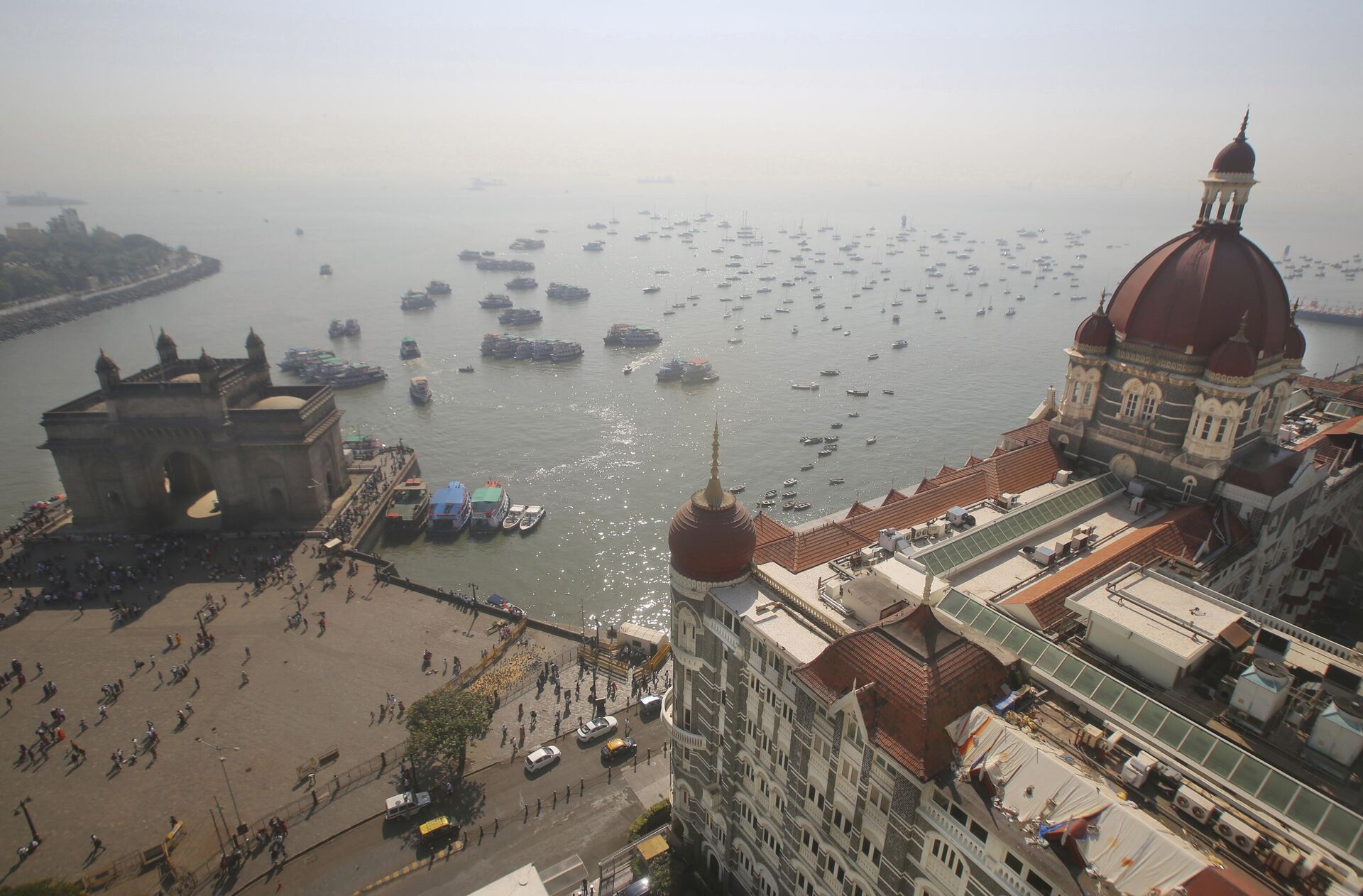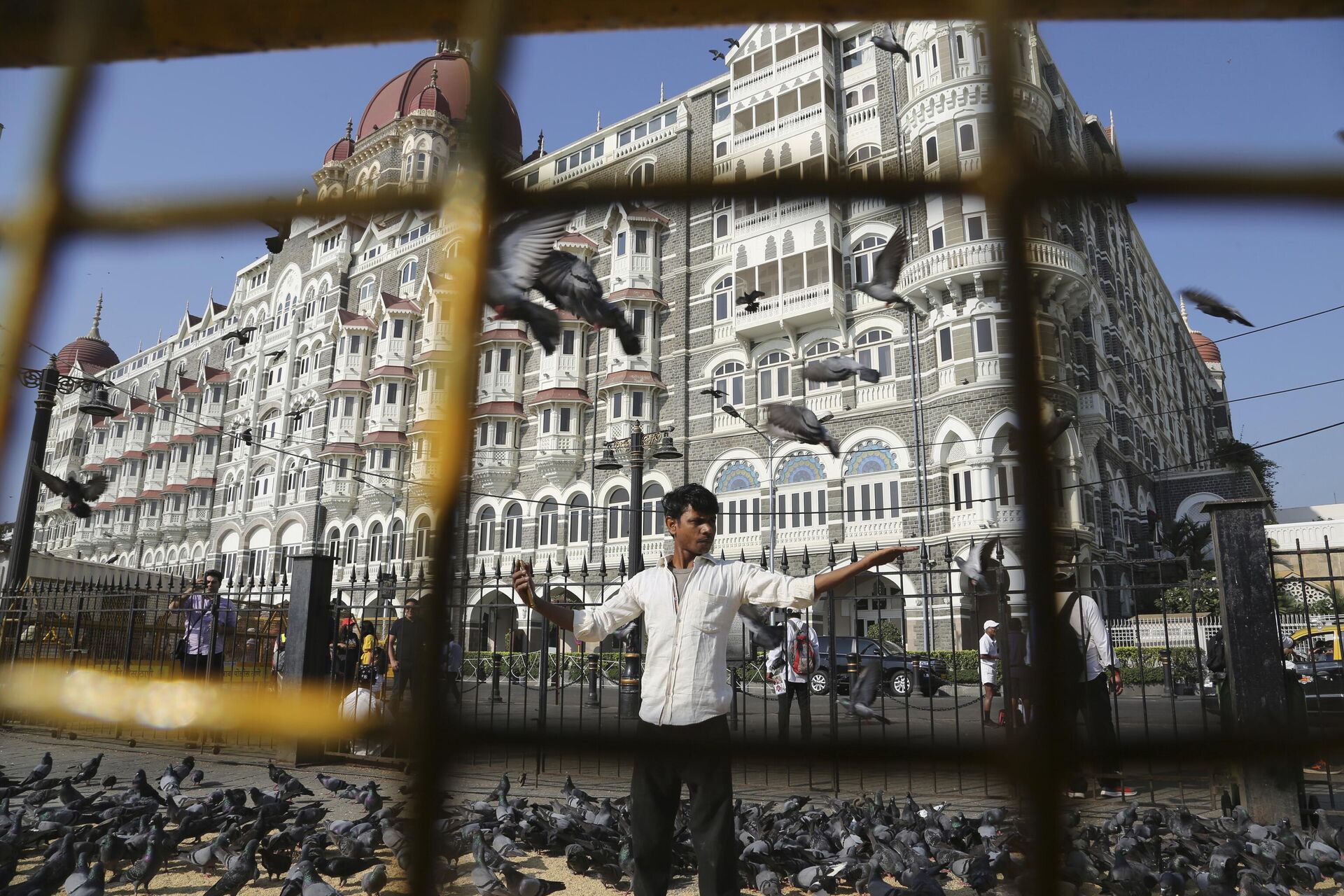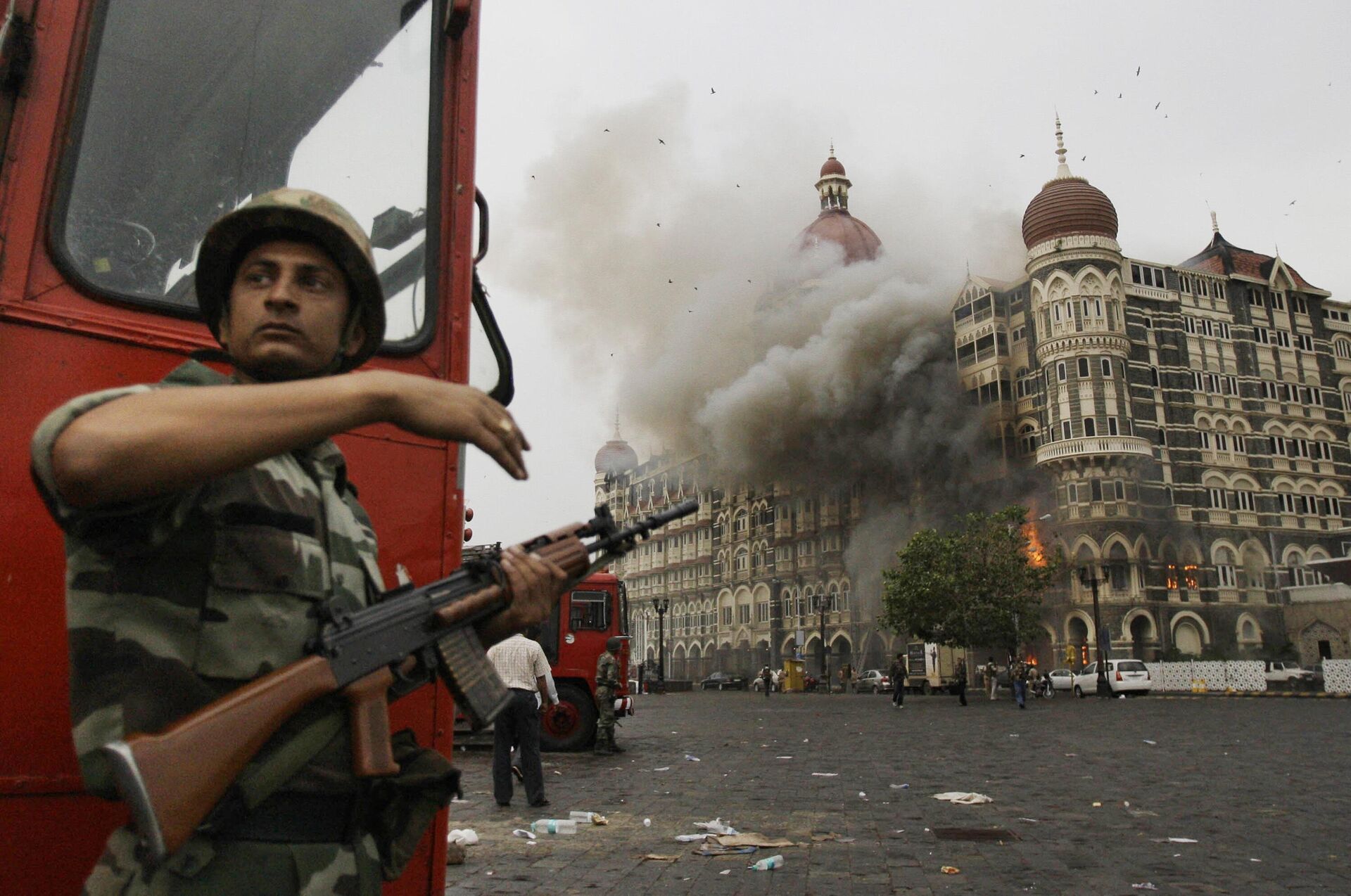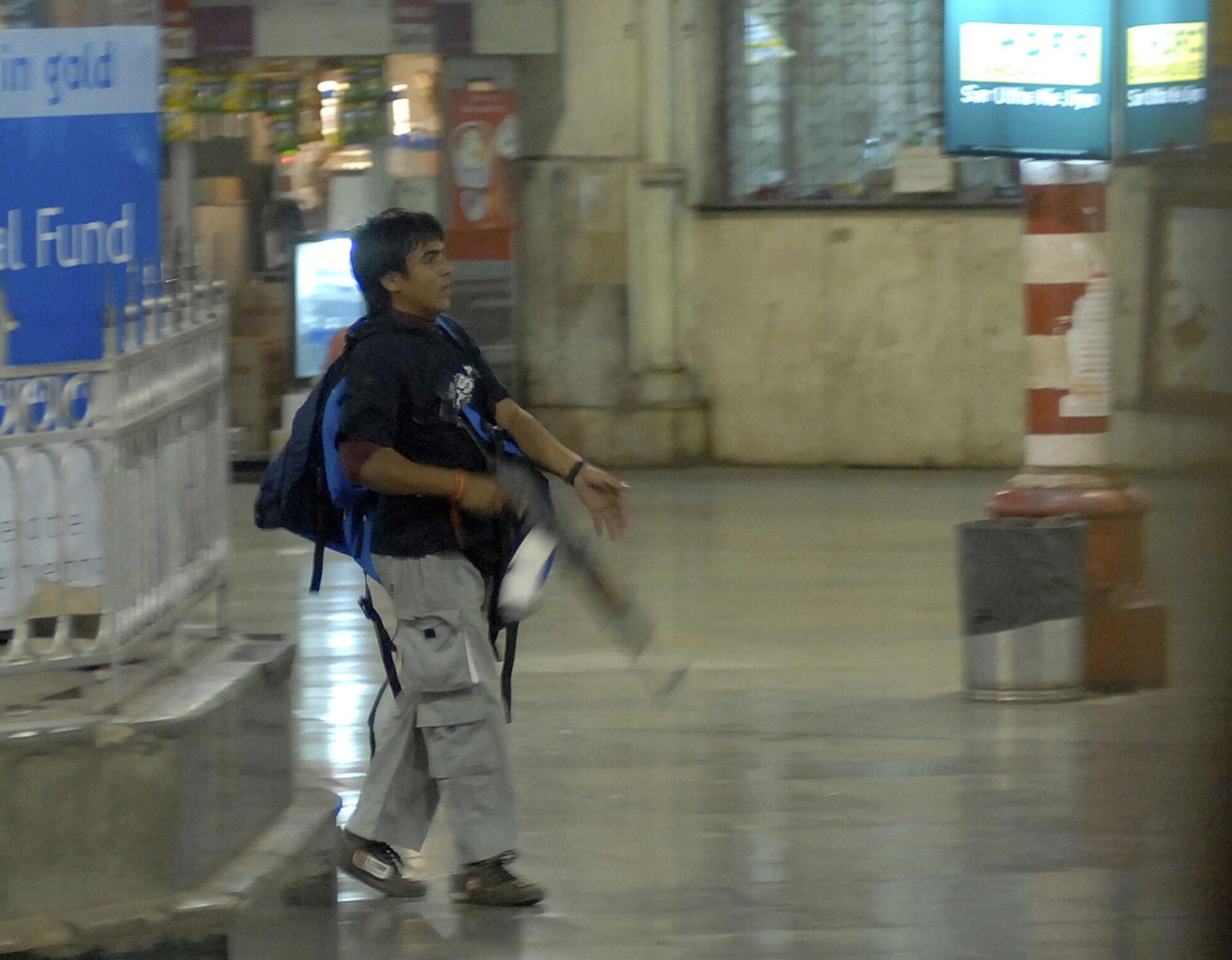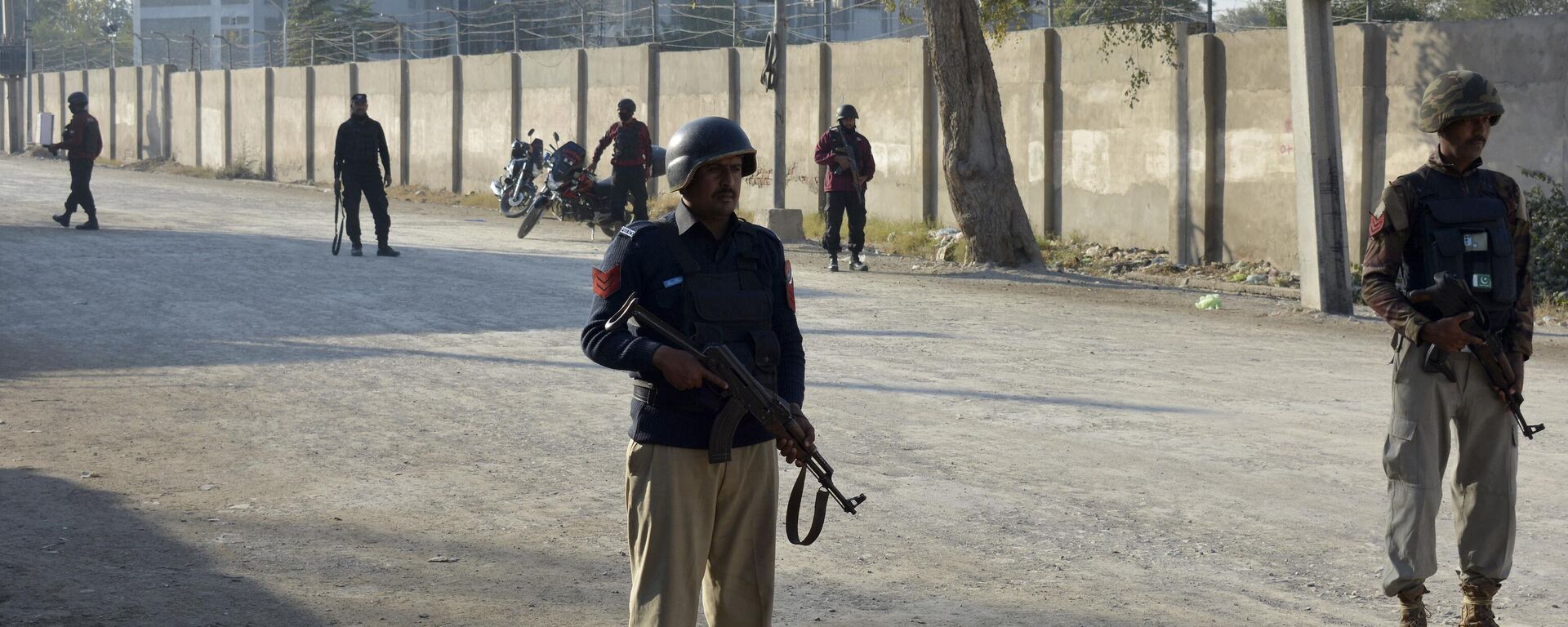https://sputniknews.in/20231126/survivor-remembers-horrific-2611-mumbai-terror-attacks-5520763.html
Survivor Remembers Horrific 26/11 Mumbai Terror Attacks
Survivor Remembers Horrific 26/11 Mumbai Terror Attacks
Sputnik India
On 26 November 2008, Mumbai was hit by horrific terror attacks that left over 150 people dead. Sputnik India spoke to survivors of the terror attacks on the anniversary of the gruesome event.
2023-11-26T12:01+0530
2023-11-26T12:01+0530
2023-11-26T13:45+0530
sputnik exclusives
terrorism
mahatma gandhi
india
pakistan
mumbai
pakistan army
national security
narendra modi
russia
https://cdn1.img.sputniknews.in/img/07e7/0b/1a/5584936_0:960:2048:2112_1920x0_80_0_0_f7568cba654707b894ef9d20b7016635.jpg
"One can well imagine what happens when a nine-year-old sees men firing bullets indiscriminately at innocent people," said Devika, a survivor of the Mumbai terror attacks, who was herself critically injured in the horrific incident, leaving a scar not only on her body but also on her mind.Recalling the incident, Devika told Sputnik India that it was just another evening in the financial capital of India when she along with her family was at Chhatrapati Shivaji Terminus (CST), formerly known as Victoria Terminus Station, to board the train to Pune to visit her elder brother, but suddenly men with guns appeared on the scene and declared that they were firing into the crowd, killing and injuring people for no reason.When asked if she had forgotten the incident that left hundreds dead, the survivor of the terrorist attack said: "I don't want to forget it. If I could put it out of my mind, then I would be able to forgive the terrorists, those who are still out there planning to harm the innocent".The Mumbai terror attacks of 26-29 November 2008 also affected my education, she said, recalling how various schools refused to admit her on security grounds.She also had a message for the Indian Prime Minister, Narendra Modi, expressing her desire to meet and discuss the welfare of those affected and how terrorism could be curbed once and for all.Nine of the gunmen were killed in the attacks and one survived. Mohammed Ajmal Kasab, the lone surviving gunman, was executed in November 2012 after due process.How the 26/11 Terror Attacks Reshaped IndiaThe policy of engaging Pakistan in peace talks to normalise relations, even as terrorists from across the border continued to strike the country, was immediately stopped and the entire anti-terrorism mechanism was strengthened with the help of much-needed international support, a security expert argues.India and Pakistan have Kashmir as their biggest point of conflict. Both nations have fought several wars over this territorial issue since gaining independence from the British.A number of steps have been taken to curb terror, including regional initiatives involving countries like Russia and Iran, which have ensured much-needed international support for India in dealing with the menace of terrorism, Agha said.The international coalition against terrorism has also helped India in dealing with such terrorist attacks, Agha said, highlighting the support of Russia - a perennial friend of India.The exchange of information among nations in dealing with terrorist activities has proved to be a vital help to all those who have suffered from terrorist acts from time to time.The US, on the other hand, is only concerned about terrorist organisations that may have harmed it or those that are against it, the expert shared.How India Commemorates World-Altering Attack"It was scary," said Shakeel Ahmed, then minister of state for home affairs in Dr Manmohan Singh's government."The damage was done when they attacked our hotels, railway station and other places with bombs and indiscriminate shelling," he said, adding that he still remembers how unbelievable it was.India Remains Vigilant to Prevent Future AttacksAsked what the nation should do to protect itself from such attacks, the former minister said the country must be vigilant, especially when it has "hostile neighbours".He also stressed that India must try to maintain good relations with all neighbours, except the unfriendly ones.
https://sputniknews.in/20231118/pakistan--russia-agree-to-forge-stronger-partnership-to-combat-terrorism-5464737.html
india
pakistan
mumbai
russia
Sputnik India
feedback.hindi@sputniknews.com
+74956456601
MIA „Rossiya Segodnya“
2023
Sushil Kumar
https://cdn1.img.sputniknews.in/img/07e7/0a/14/4972259_0:0:613:612_100x100_80_0_0_f89d4c7eaa17d23ebb41934f3e07e508.jpg
Sushil Kumar
https://cdn1.img.sputniknews.in/img/07e7/0a/14/4972259_0:0:613:612_100x100_80_0_0_f89d4c7eaa17d23ebb41934f3e07e508.jpg
News
en_IN
Sputnik India
feedback.hindi@sputniknews.com
+74956456601
MIA „Rossiya Segodnya“
Sputnik India
feedback.hindi@sputniknews.com
+74956456601
MIA „Rossiya Segodnya“
Sushil Kumar
https://cdn1.img.sputniknews.in/img/07e7/0a/14/4972259_0:0:613:612_100x100_80_0_0_f89d4c7eaa17d23ebb41934f3e07e508.jpg
india, mumbai terror attack, kashmir as the biggest conflicting point, mahatma gandhi, devika, pakistani terrorists, survivor, chhatrapati shivaji terminus (cst), 26/11, november 26, terror attak on november 26
india, mumbai terror attack, kashmir as the biggest conflicting point, mahatma gandhi, devika, pakistani terrorists, survivor, chhatrapati shivaji terminus (cst), 26/11, november 26, terror attak on november 26
Survivor Remembers Horrific 26/11 Mumbai Terror Attacks
12:01 26.11.2023 (Updated: 13:45 26.11.2023) On 26 November 2008, Mumbai was hit by horrific terror attacks that left at least 166 people dead. Sputnik India spoke to survivors of the terror attacks on the anniversary of the gruesome event.
"One can well imagine what happens when a nine-year-old sees men firing bullets indiscriminately at innocent people," said Devika, a survivor of the Mumbai terror attacks, who was herself critically injured in the horrific incident, leaving a scar not only on her body but also on her mind.
Recalling the incident, Devika told Sputnik India that it was just another evening in the financial capital of India when she along with her family was at Chhatrapati Shivaji Terminus (CST), formerly known as Victoria Terminus Station, to board the train to Pune to visit her elder brother, but suddenly men with guns appeared on the scene and declared that they were firing into the crowd, killing and injuring people for no reason.
"I was too young to understand what was happening and soon I too was hit in my right leg. The bullet went through it and left me almost dead at the railway station," recalls Devika, now 24 and about to graduate.
When asked if she had forgotten the incident that left hundreds dead, the survivor of the terrorist attack said: "I don't want to forget it. If I could put it out of my mind, then I would be able to forgive the terrorists, those who are still out there planning to harm the innocent".
The Mumbai terror attacks of 26-29 November 2008 also affected my education, she said, recalling how various schools refused to admit her on security grounds.
"It was a real social boycott, be it schools or even relatives, no one wanted me to be with them except my family, which included my father and brothers (I had already lost my mother), once I recovered from my injuries," the ambitious young woman, who wants to become a government officer, told Sputnik India.
She also had a message for the Indian Prime Minister, Narendra Modi, expressing her desire to meet and discuss the welfare of those affected and how terrorism could be curbed once and for all.
On this day 15 years ago, militants linked to the terrorist group Lashkar-e-Tayyiba stormed buildings in Mumbai, killing over 166 people.
Nine of the gunmen were killed in the attacks and one survived. Mohammed Ajmal Kasab, the lone surviving gunman, was executed in November 2012 after due process.
How the 26/11 Terror Attacks Reshaped India
The policy of engaging Pakistan in peace talks to normalise relations, even as terrorists from across the border continued to strike the country, was immediately stopped and the entire
anti-terrorism mechanism was strengthened with the help of much-needed international support, a security expert argues.
"Earlier, it was business as usual for terrorists from Pakistan as they often targeted different parts of India," Qamar Agha, a New Delhi-based expert on terrorism and security, told Sputnik India, adding that things changed completely after 26/11 when the government made it clear to the world that talks and terror cannot go hand in hand.
India and Pakistan have Kashmir as their biggest point of conflict. Both nations have fought several wars over this territorial issue since gaining independence from the British.
A number of steps have been taken to curb terror, including regional initiatives involving countries like Russia and Iran, which have ensured much-needed international support for India in dealing with the menace of terrorism, Agha said.
"India's firm stand that talks and terror cannot go hand in hand and international support, especially from Russia, changed the game," he explained, adding that the abrogation of Article 370 of the (Indian) Constitution - which gave special status to the erstwhile state of Jammu and Kashmir (now a union territory) - had played a significant role in reducing terrorist activity in the region.
The international coalition against terrorism has also helped India in dealing with such terrorist attacks, Agha said, highlighting the support of Russia - a perennial friend of India.
"In addition to sowing fear and panic among the population, the terrorists have also succeeded in aggravating the already difficult relations between two nuclear powers - India and Pakistan. The list of similar examples could go on for a long time," said Valentin Sobolev, the then Russian deputy secretary of the Security Council, in 2009.
The exchange of information among nations in dealing with terrorist activities has proved to be a vital help to all those who have suffered from terrorist acts from time to time.
The US, on the other hand, is only concerned about terrorist organisations that may have harmed it or those that are against it, the expert shared.
"The US is selective in its approach to terrorist groups around the world, so not much can be expected from them on this front," he explained.
How India Commemorates World-Altering Attack
"It was scary," said Shakeel Ahmed, then minister of state for home affairs in Dr Manmohan Singh's government.
Speaking to Sputnik India, the former Union Minister said, "It was terrible, but the government of the day responded promptly and the situation was brought under control.
"The damage was done when they attacked our hotels, railway station and other places with bombs and indiscriminate shelling," he said, adding that he still remembers how unbelievable it was.
"When the news of the attack broke, we thought it was some local criminals involved in shooting among themselves, but soon it was clear that it was a terrorist attack and the government and its agencies responded accordingly," he said.
India Remains Vigilant to Prevent Future Attacks
Asked what the nation should do to protect itself from such attacks, the former minister said the country must be vigilant, especially when it has "hostile neighbours".
"We are the nation of Mahatma Gandhi and as a peace-loving country we don't attack anyone, but that doesn't mean we won't defend our interests," he said.
He also stressed that India must try to maintain good relations with all neighbours, except the unfriendly ones.

